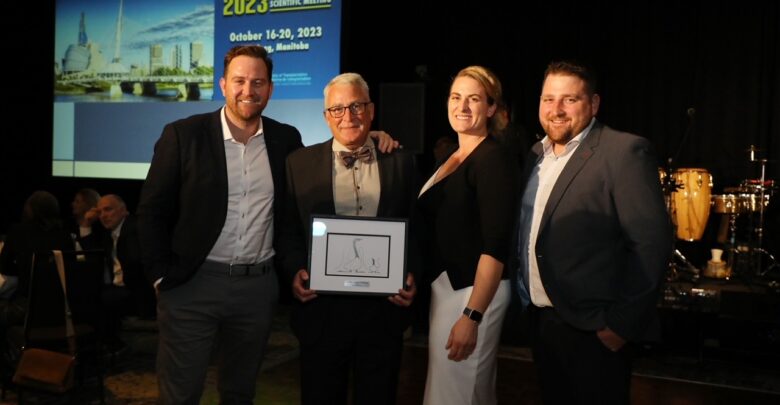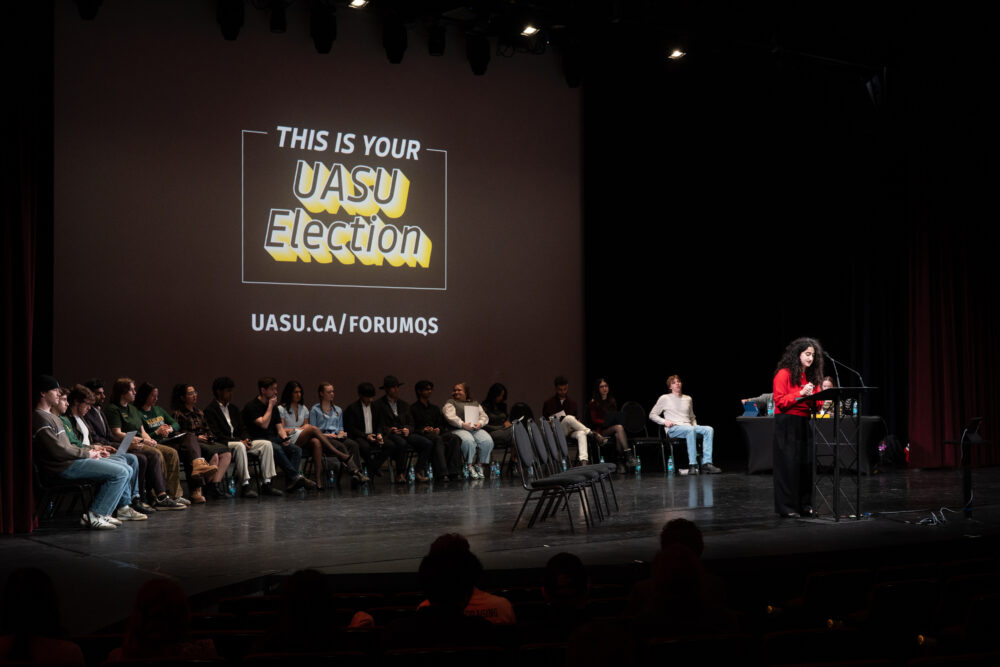 Supplied
SuppliedA professor and transplant physician at the University of Alberta has received the Canadian Society of Transplantation (CST) Lifetime Achievement Award for his contributions to medicine and the field of transplantation.
Dr. Ronald Moore is a professor in the department of surgery specializing in oncology, and the Mr. Lube Foundation Chair in Uro-Oncology.
“For 30 years I’ve cared for patients with end-stage renal disease requiring organ replacement or remaining on dialysis,” Moore said.
Dialysis is a treatment that assists the body in filtering blood to remove extra fluid and waste products. This treatment is often necessary when the kidneys are unable to properly filter blood.
An important part of Dr. Moore’s career has been helping to increase organ transplants
Dr. Moore has dedicated much of his research and career to helping people live with urological cancers and renal failure.
“This research has improved access to transplantable organs and has attracted undergraduate and graduate students to pursue transplant careers,” Dr. Moore said.
The majority of transplant recipients are in need of a kidney. This makes kidney transplants the most common operation for Dr. Moore. He said a vital aspect of his career has been increasing the amount of candidates who can receive organ transplants. In the past, only the “best” or healthiest candidates received transplants. And, only the best organs were used.
“As knowledge grew that everyone benefited from a kidney transplant, as opposed to remaining on dialysis, there [were] not enough organs to go around. We had to learn to maximize use of every donated organ we could get.”
To make the most of all donated organs, Dr. Moore and his colleagues had to learn to utilize “non-ideal” organs. These include organs from very old or young donors, or organs with multiple blood vessels supplying them.
“Ideal donors are not common. We had to learn to use all of the organs to help as many people as possible,” Dr. Moore said.
“Recognition from your peers that you’ve made a contribution nationally and internationally to transplantation is a real honour,” Dr. Moore says
Dr. Moore is grateful for his involvement with the CST and he has been active in many ways. Initially he was just a member, reviewing research projects and setting standards for tissue donation.
“Being involved with CST means you’re working with like-minded people … to improve access to organ transplantation across Canada,” Dr. Moore said.
“It was nice to be recognized by the [CST] that I had made a significant contribution to research. [From] caring for patients, to training the next generation of transplant surgeons … that’s almost 30 years of looking after people in that field.”
Although Dr. Moore described seeing his patients recover and improve as a “self-evident reward,” he is still extremely appreciative for this award.
“Recognition from your peers that you’ve made a contribution nationally and internationally to transplantation is a real honour.”
“The mentorship aspect is always special,” Dr. Moore says
For Dr. Moore, teaching and mentoring the next generation of transplant surgeons has been very meaningful.
“The mentorship aspect is always special. You’ve passed on the knowledge to improve care for patients with kidney disease to the next generation.”
Dr. Moore is not only proud to be a mentor. He also often reflects on the mentors that gave him the knowledge necessary to make meaningful contributions to medicine.
“You stand on the shoulders of many giants that went ahead of you to pioneer the field so that you can then contribute and be a bit of an innovator yourself.”
Dr. Moore is grateful for the mentors that came before him, but he also recognized the need for change and innovation in the field of transplantation. He approximates that 800 transplants were conducted at the university hospital before he began performing transplants. Moore was able to quadruple this number during his time as a transplant surgeon.
“By the time [I finished my] career [I] had done over 3,200 transplants. There [have] been a lot of people that benefited from what we’ve done as a transplant program. I’m glad I was a part of it.”
In the near future, Dr. Moore plans to research the potential of genetically modifying organs so they do not need to be replaced or aided by immunosuppressive drugs.
“It’s just a matter of innovation and creative minds to think about problems and how they can improve or solve [them].”




